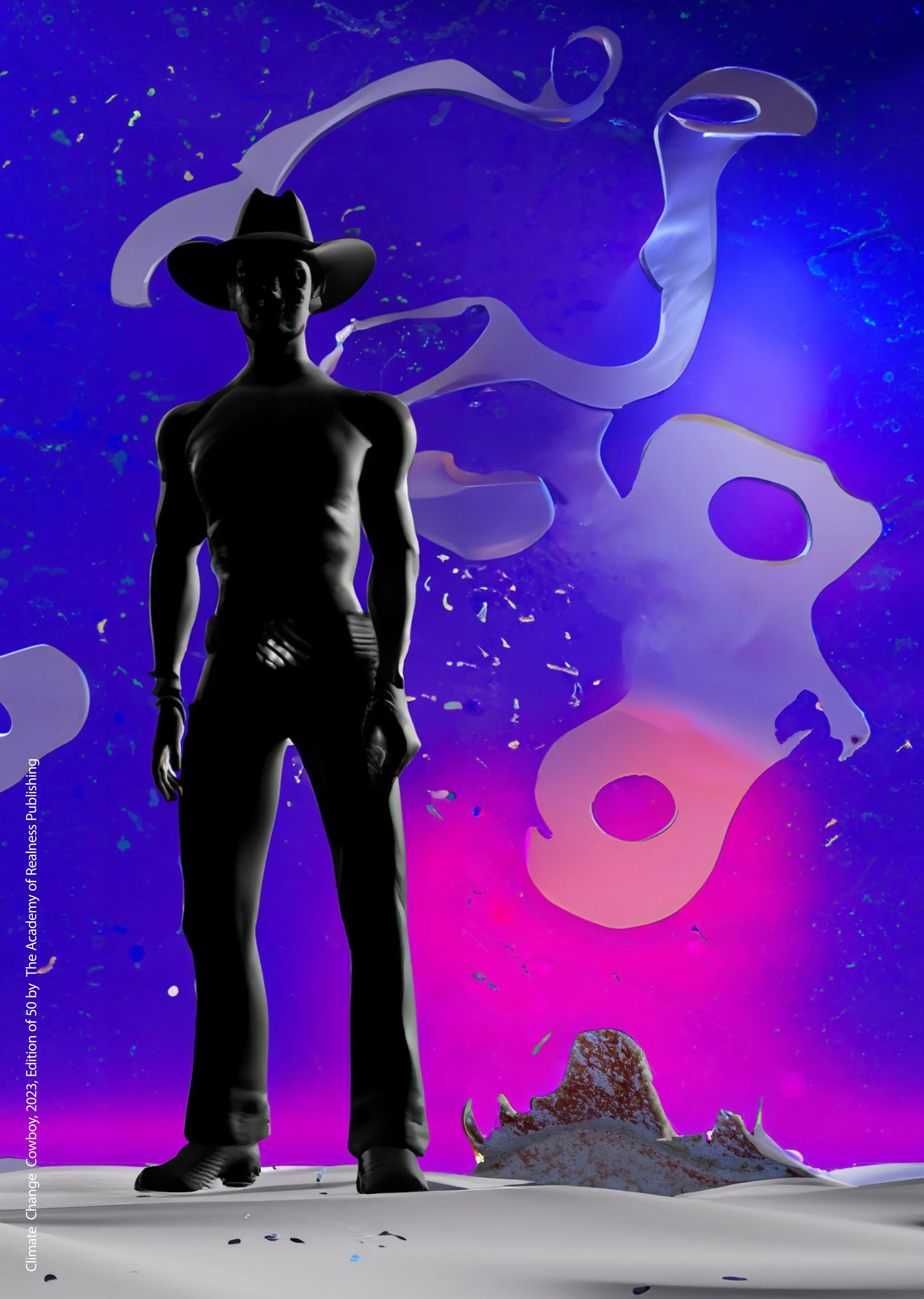The “Climate Change Cowboy” poster by Rafael Melendez
“The “Climate Change Cowboy” poster by Rafael Melendez exemplifies neo-conceptual art in a post-appropriation world. all begins with an idea.”
Climate Cowboy Poster, 2023 (AI generated)
The “Climate Change Cowboy” poster by Rafael Melendez exemplifies neo-conceptual art in a post-appropriation world. Neo-conceptualism prioritizes ideas over aesthetic forms, engaging with contemporary issues through a critical lens. This AI-generated image, available for £10, features a silhouette of a muscular cowboy against a vibrant, abstract background, blending traditional and modern methodologies to address the urgent theme of climate change.
Neo-Conceptual Premise
The cowboy, an icon of rugged individualism and resilience, serves as a metaphor for humanity’s relationship with the environment. Positioned against a backdrop of vivid blues, purples, and pinks adorned with fluid, chaotic shapes, the figure underscores the unpredictability and urgency of climate change. The integration of AI technology in creating the image further challenges traditional notions of authorship and creativity, aligning with neo-conceptualism’s emphasis on ideas and processes.
Post-Appropriation Context
In the post-appropriation art world, artists move beyond merely repurposing cultural symbols; they transform and critique them. Melendez’s use of the cowboy icon is not just a reuse of a familiar image but a reinvention that challenges its original connotations. Historically associated with conquest and frontier spirit, the cowboy is recontextualized within the pressing narrative of climate change, suggesting a need for a new heroism—one that confronts environmental crises rather than exploiting natural resources.
Gender Dynamics
The use of the masculine cowboy silhouette adds a nuanced layer to the artwork’s neo-conceptual premise. Climate change activism is often framed as a nurturing and protective concern, traditionally associated with feminine qualities. By employing the cowboy, a figure entrenched in hyper-masculine imagery, Melendez subverts these gender associations. This artistic choice promotes the idea that climate change is a universal issue requiring the attention and action of all genders.
Reframing Masculinity
In this context, the cowboy symbolizes a new kind of heroism defined by stewardship and responsibility. This reframing encourages viewers, especially men, to embrace their role in environmental conservation and redefine masculinity regarding caring for the planet. Blending masculine and feminine qualities in the artwork fosters a more inclusive and unified front against environmental degradation.
Environmental Message
The poster’s vivid colours and abstract shapes evoke the beauty and chaos of the natural world, suggesting that the fight against climate change requires a combination of old-world toughness and new-age innovation. This combination serves as a call to action, urging viewers to reconsider their role in environmental stewardship.
Conclusion
“Climate Change Cowboy” stands as a thought-provoking piece within neo-conceptual art, effectively using post-appropriation strategies to critique and reimagine cultural icons. Its AI-generated nature and the integration of gender dynamics enrich the dialogue around contemporary art practices, making it a significant work for both art enthusiasts and environmental advocates. The poster uniquely combines rugged individuality with a strong environmental message, redefining traditional gender roles and emphasizing the collective effort needed to combat climate change.



